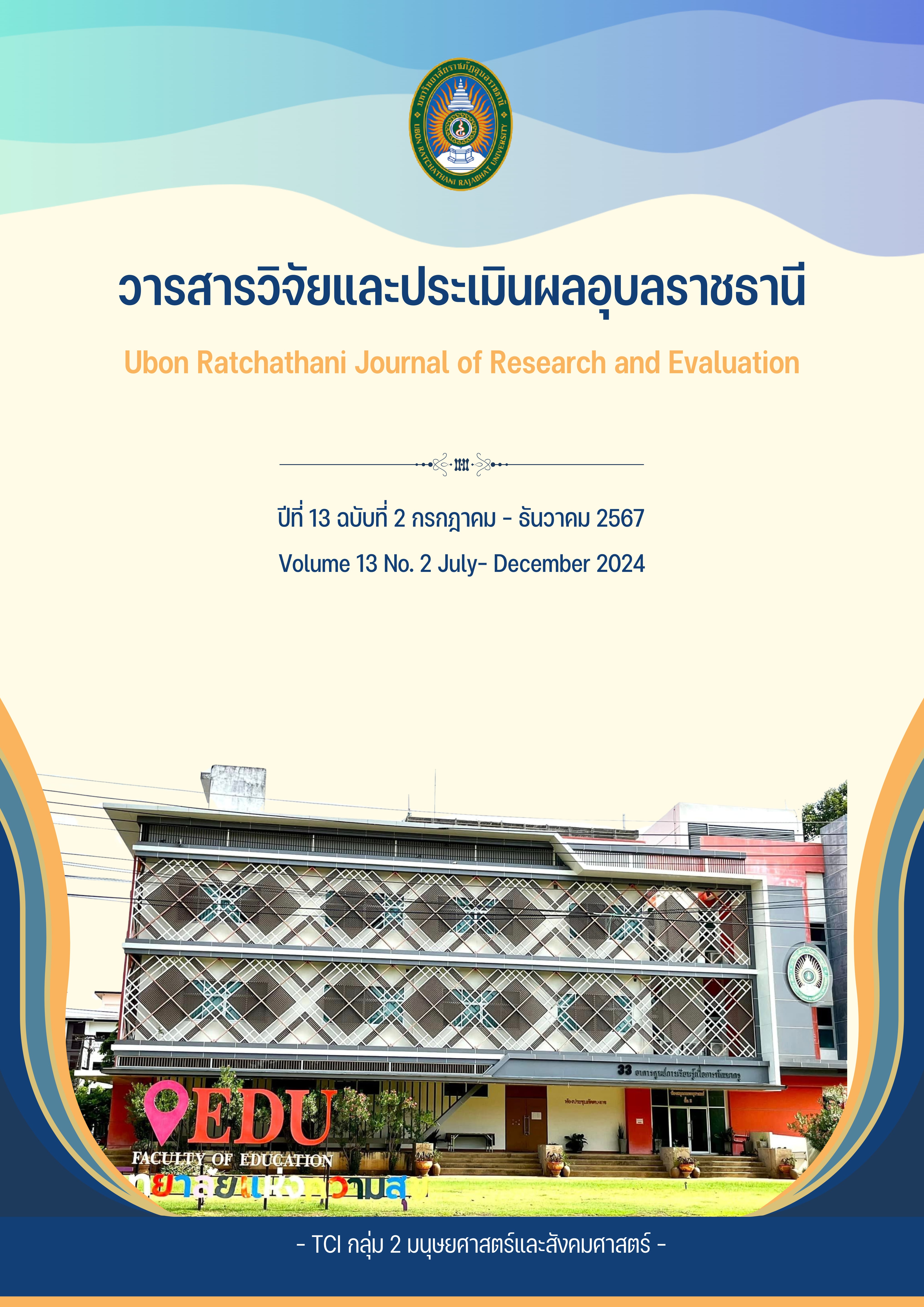Participatory Action Research to Promote Community-Based Learning Processes in Primary Schools
Abstract
This article presents the principles of participatory action research to promote community-based learning processes. It is a methodology that enhances the quality of educational institutions in organizing learning activities, emphasizing the development of learning potential among primary school students as a critical foundation for lifelong learning and skill development. Furthermore, it cultivates a sense of community value and public responsibility through education, thereby establishing a network of community involvement in the educational process. Teachers play a key role in designing learning activities based on students' interests, addressing their needs, and integrating teaching with local wisdom. This approach not only strengthens learning skills connected to culture and daily life but also incorporates local knowledge into school curricula, paving the way for it to become a form of "soft power" that reflects the unique identity of schools rooted in local culture. Primary school students, being in a formative stage of life, require a solid foundation in life skills and continuous learning development. Readiness to learn is not solely dependent on intelligence (IQ) but also on physical, emotional, social, and environmental factors that support skill development. Consequently, learning should not be confined to classroom settings; out-of-classroom experiences, including activities and fieldwork , play a crucial role in enhancing students' understanding and application of these skills. By integrating community resources and real-world experiences into the curriculum, schools can foster a more holistic approach to education that nurtures well-rounded individuals prepared to navigate the complexities of modern life are essential for fostering holistic learning connected to real-life contexts. This type of learning is valuable as it instills love and pride in students for their local communities, ultimately contributing to a deeper sense of belonging and cultural appreciation.
Downloads
Published
How to Cite
Issue
Section
License
Copyright (c) 2024 Ubon Ratchathani Journal of Research and Evaluation

This work is licensed under a Creative Commons Attribution-NonCommercial-NoDerivatives 4.0 International License.
1. บทความที่ตีพิมพ์ในวารสารนี้ได้มีการตรวจสอบการลอกเลียนงานวรรณกรรมแล้ว ไม่เกินร้อยละ 25
2. บทความที่ตีพิมพ์ในวารสารนี้เป็นข้อคิดเห็น ข้อค้นพบของผู้เขียนบทความ โดยผู้เขียนบทความต้องเป็นผู้รับผิดชอบต่อผลทางกฎหมายใด ๆ ที่อาจเกิดขึ้นจากบทความนั้น ๆ
3. บทความ ข้อมูล เนื้อหา รูปภาพ ฯลฯ ที่ได้รับการตีพิมพ์ในวารสารวิจัยและประเมินผลอุบลราชธานี ถือเป็นลิขสิทธิ์ของวารสารวิจัยและประเมินผลอุบลราชธานี หากบุคคลหรือหน่วยงานใดต้องการนำทั้งหมดไปเผยแพร่ต่อหรือเพื่อกระทำการใดๆ จะต้องได้รับอนุญาตเป็นลายลักษณ์อักษรจากวารสารวิจัยและประเมินผลอุบลราชธานีก่อนเท่านั้น และจะต้องมีการอ้างอิงวารสารวิจัยและประเมินผลอุบลราชธานี ฉบับนั้น ๆ ด้วย






